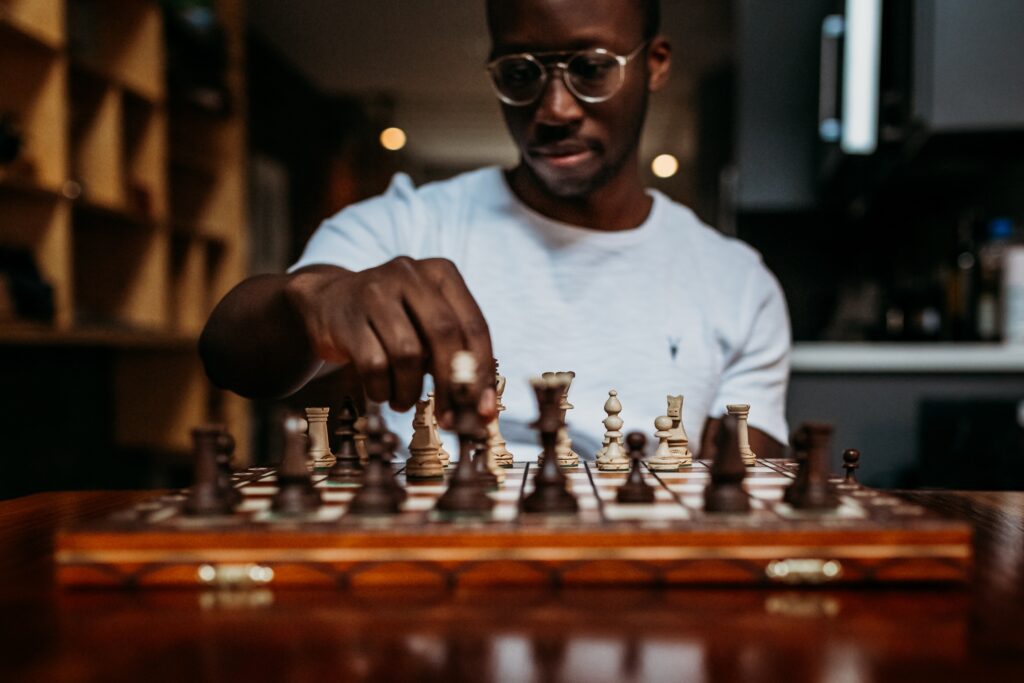
Chess is a simple game. 64 squares, 32 pieces, one move at a time. It’s the perfect antidote to my complicated life as a busy college student taking my first steps into the professional world. Free time is hard to come by, but when I do find a spare minute, I love to play chess with my friends, both in-person and online. It’s a relaxing distraction from the chaotic world around me, and the lessons I’ve learned on the board have helped me develop essential skills in my life outside the game.
Here are four great ways playing chess will improve your life:
You’ll meet new people
Chess is a universal game, so playing it is a great way to meet new people. Whether you’re playing a friendly stranger at a public park or battling against competition at a local chess tournament, there are countless opportunities to connect with people you never would have met otherwise. When I took a cross-country summer trip to the west coast, I signed up for a local tournament in Portland, Oregon on a whim. I met some great people there whose personalities and friendliness made my trip so much more fun!
You can connect with old friends

With so many free online chess apps and websites, you can easily keep in touch with old friends by playing a quick game online. Many chess apps have a chat function, so you and your friends can catch up on what’s going on in your lives in between your moves. After we graduated high school, my hometown friends and I went our separate ways, but we’ve stayed connected by playing online chess matches together. We will periodically send a match challenge to each other, which prompts a notification on our phones, and we just play when we can!
RELATED: 5 Ways to Maintain a Long-Distance Friendship
You can learn from your mistakes
Chess has a uniquely strong feedback system: If you lose a game, you can know exactly what moves you did wrong and how you can improve. While it’s not always that easy in life, developing the skill of looking back and learning from your mistakes will help you in countless ways.
I love to cook and bake, but sometimes my creations don’t turn out the way I want them to. The experience of learning from my losses in chess has also helped me become more patient and ready to learn from my culinary errors. I see my bad batches as opportunities to become an even better baker, just like I see my chess losses as an opportunity to become a better chess player!
It’s an opportunity to develop patience
Chess is a slow, thinking game, so patience is necessary. Depending on the time control you play with, you may have to wait for 30 seconds, 10 minutes, or even multiple days for an opponent to move. Long breaks are a great time to reflect on the game and look ahead at what strategies you could use in response to your opponent’s next move. With practice, this exercise can translate to other areas of your life. Whether you’re waiting for a response to a job application, for a late coworker to arrive at a meeting, or for a delicious treat to bake in the oven, the patience you learn from chess can make those waiting times an opportunity to reflect and think ahead instead of just an annoyance.
RELATED: 4 Daily Mantras to Help Overcome Perfectionism
Even if you’ve never played chess before, or you tried it but decided it wasn’t for you, I would urge you to give it a shot. There are countless free chess apps and websites where you can get started, including lichess.org or chess.com, and if you really get the hang of it you could even try playing in a local chess tournament! Whatever your relationship with chess is, there are so many ways that playing it will improve your life.